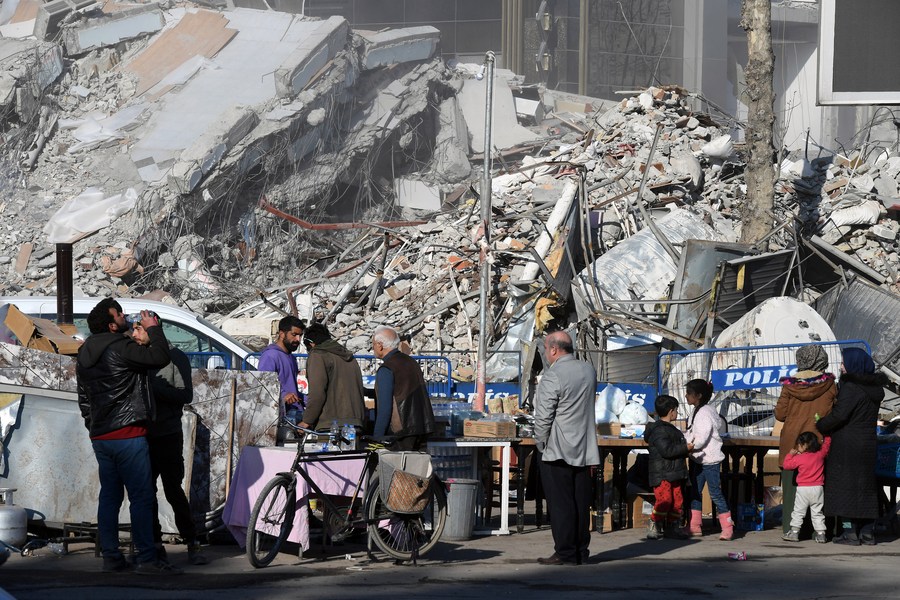Turkiye launches salary support scheme, bans layoffs in earthquake zone


ANKARA -- Turkiye has launched a temporary salary support scheme and banned job cuts in southern provinces hit by the recent earthquakes, the country's official gazette said Wednesday.
The government will provide salary support for employers in provinces under the state of emergency to partially cover the wages of their workers. Employers will be able to benefit from the allowance if their workplaces are "heavily or moderately damaged."
In addition, the government also banned layoffs in the earthquake zone, except for reasons of not complying with the rules of morality and goodwill, closure of the workplace, and expiry of the employment contract, said the report.
The move aims to safeguard workers and businesses in the region from the economic impact of the devastating earthquakes on Feb 6, which have claimed over 42,000 lives.
The earthquakes could cost up to $84 billion, or about 10 percent of the country's gross domestic product (GDP), according to a report from the Turkish Enterprise and Business Confederation (TURKONFED).
A total of $70.7 billion of financial damage will result from housing loss, $10.4 billion from national income loss and $2.9 billion from loss of working days, the TURKONFED said in its preliminary report issued four days after the quakes.
The 10 quake-hit provinces, where some 13.5 million people lived, account for 9.3 percent of the country's GDP and 8.7 percent of Turkiye's total exports, with cereals, pulses, oil seeds and their products, steel, agricultural products, textiles and raw materials, and ready-made clothing products as the leading export items from the region.
However, given a mass exodus from the disaster region, it is unlikely for the factories in the region to find enough workers even if they are able to resume production.
In the southern province of Mersin that neighbors the disaster-affected region, 47 institutions and non-governmental organizations made a joint statement on Wednesday, saying the population of the province increased by 40 percent in two weeks because of migration after the earthquake.
"There are 70,000 families coming from the quake region, and an estimated 40,000 will stay here," Vahap Secer, mayor of Mersin Metropolitan Municipality, said in a statement, calling for housing projects in his province too.
Turks have already been struggling for several years with rampant inflation and currency turmoil. The massive earthquakes hitting the country on Feb 6 have further added to their woes.

































